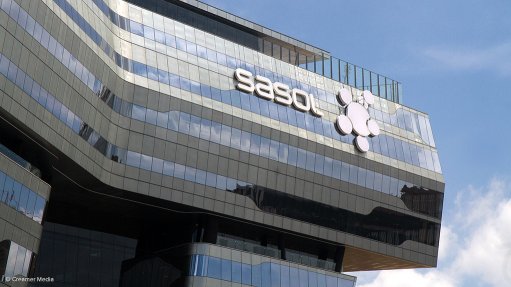
CARE-O-SENE consortium announced at a function hosted at Sasol’s Sandton head office this week
Photo by: Creamer Media
South African energy and chemicals group Sasol has teamed up with Helmholtz-Zentrum Berlin (HZB) to lead a consortium of German and South African partners that will research and optimise the catalysts required to produce sustainable aviation fuel (SAF) on a commercial scale through Fischer-Tropsch (FT) technology.
South African President Cyril Ramaphosa and German Chancellor Olaf Scholz presided over the launch of the research project dubbed ‘CARE-O-SENE’, or Catalyst Research for Sustainable Kerosene, at a function hosted at Sasol’s Sandton head office this week.
The project will be funded by the German Federal Ministry of Education and Research and Sasol and the other consortium partners are the Fraunhofer Institute for Ceramic Technologies and Systems, the Karlsruhe Institute of Technology, the University of Cape Town’s department of chemical engineering and Ineratec.
Separately, Sasol is partnering with Linde, Enertrag and Navitas in a bid to produce SAF, using green hydrogen and sustainable carbon dioxide sources, under Germany’s H2Global platform.
Sasol has indicated that it is initially aiming to produce 15 000 t/y of SAF at its Secunda operation, in Mpumalanga, before scaling up yearly production to 2.5-million tons.
CARE-O-SENE will run for three years with the goal of developing the catalysts – used to speed up chemical reactions, increase yield and improve fuel quality – required for large-scale commercialisation of ‘green kerosene’ production by 2025.
Sasol reports that the new FT catalysts are expected to increase the fuel yield of the process to over 80%.
Speaking at the CARE-O-SENE launch, Sasol CEO Fleetwood Grobler said the group’s expertise in FT technology and catalysts made it an ideal partner to help Germany and the world decarbonise the aviation sector and make it sustainable over the long term.
HZB Scientific MD Professor Dr Bernd Rech added that the research would enable accelerated innovation in a crucial field of green energy.
“This can only be achieved in a global partnership by deeply integrating fundamental research and technology development on an industry-relevant scale,” Rech said.